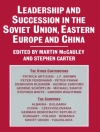This work investigates how various sacred spaces in Ottoman and Republican Turkey interfaced with British foreign policy. It considers how these spaces impacted upon British prestige in the context of its dealings with Turkey chiefly, as well as other Great Powers. The period covered is from the demise of the Levant Company in 1825, to the deconsecration of the Crimean Memorial Church in Istanbul, in 1976. Other sacred spaces discussed include the British Embassy Chapel, the Crimean War cemeteries, various British churches and cemeteries in Izmir, the Gallipoli cemeteries, connected with the campaign of 1915, and the Phanar, the Ecumenical Patriarch’s home in Istanbul. The book considers how, and to what extent, the Foreign Office in London, and its staff in Turkey, intervened to secure those spaces, and why the politics of the Patriarchate intruded into the Foreign Office’s geo-strategic considerations. It considers the limits of that support, and how dealings over sacred space intermeshed generally with British policy towards Turkey. It further explores the motives, not just of diplomats and consuls, who were instrumental in establishing or safeguarding those spaces, but also the aims of other organisations and of expatriate Britons, who were similarly involved. It also considers instances where such support became attenuated or was withdrawn. The book is unique in illuminating, in a broad fashion, the role of sacred space in the context of Anglo-Turkish relations, and British power projection in the Near East.
John Fisher
Sacred Space and Anglo-Turkish Relations [PDF ebook]
The Politics of British Churches, Cemeteries and War Graves in Turkey, 1825 to 1976
Sacred Space and Anglo-Turkish Relations [PDF ebook]
The Politics of British Churches, Cemeteries and War Graves in Turkey, 1825 to 1976
Dieses Ebook kaufen – und ein weitere GRATIS erhalten!
Sprache Englisch ● Format PDF ● Seiten 376 ● ISBN 9780755654642 ● Verlag Bloomsbury Publishing ● Erscheinungsjahr 2024 ● herunterladbar 3 mal ● Währung EUR ● ID 9594561 ● Kopierschutz Adobe DRM
erfordert DRM-fähige Lesetechnologie












